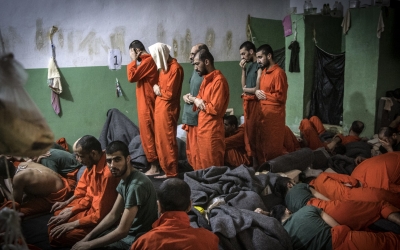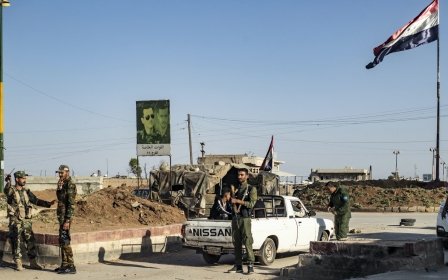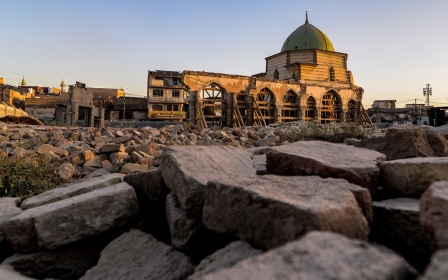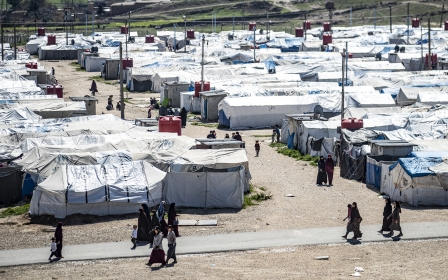Syria: 50 detained Islamic State fighters returned to Iraq
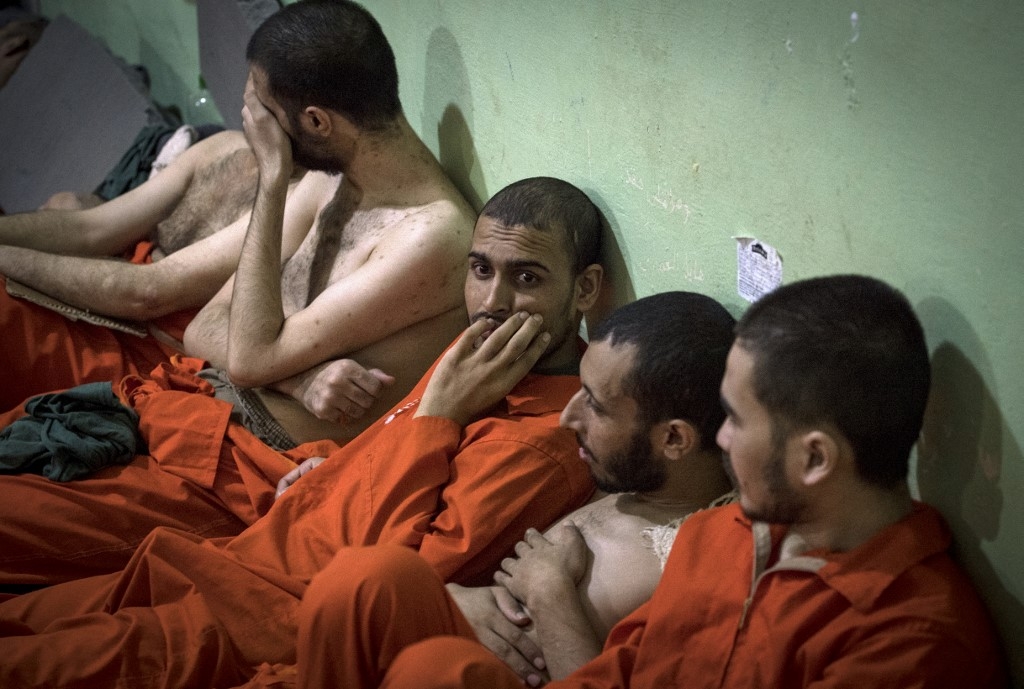
Fifty Iraqi fighters from the Islamic State (IS) group detained by Kurdish-led forces in northeast Syria have been returned home to face legal action, security services said on Wednesday.
The Syrian Democratic Forces (SDF) handed them over at the Rabia border post, Iraq's joint operations command said in a statement, according to AFP.
It said the captives would be questioned by the interior ministry's intelligence services, which would take "all necessary judicial measures".
Iraq has prosecuted thousands of its nationals accused of IS membership, a charge which carries the death sentence under its anti-terrorism laws.
The SDF has warned of the high-security risks of holding thousands of IS prisoners, as highlighted by a jailbreak attempt by militants in January in Ghwayran, northeast Syria, that cost hundreds of lives in several days of fighting.
Iraq also repatriated 100 militants in December, the latest in a string of such operations.
A senior military official told AFP that some 3,500 Iraqi detainees remain in Syrian Kurdish jails, as well as 30,000 other Iraqis, including 20,000 children, in Syria's al-Hol camp for the displaced.
In contrast to the reticence of western countries, Iraq has so far repatriated more than 450 families from the camp.
Iraq announced its victory against IS in late 2017 after three years of ferocious fighting backed by paramilitary forces and the US-led international coalition.
But IS cells still carry out hit-and-run attacks, particularly in the vast desert regions of northern and western Iraq near the porous border with Syria.
The IS group has "maintained the ability to launch attacks at a steady rate in Iraq, including hit-and-run operations, ambushes, and roadside bombs", a UN report said in February.
The report said that the group still has "between 6,000 and 10,000 fighters across both countries (Iraq and Syria), where it is forming cells and training operatives to launch attacks".
Middle East Eye propose une couverture et une analyse indépendantes et incomparables du Moyen-Orient, de l’Afrique du Nord et d’autres régions du monde. Pour en savoir plus sur la reprise de ce contenu et les frais qui s’appliquent, veuillez remplir ce formulaire [en anglais]. Pour en savoir plus sur MEE, cliquez ici [en anglais].


